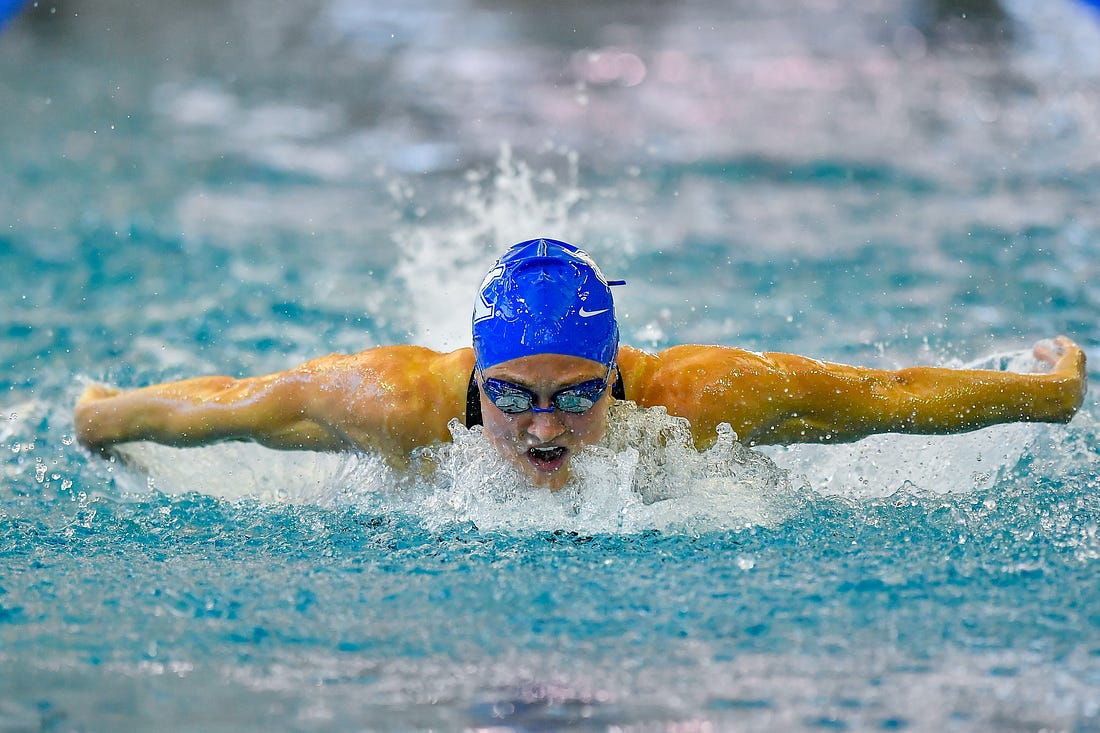|
 |
I needed a day off from politics, but hope this will interest at least a few of you. Also: Sarah and I taped an abbreviated Secret show early this morning. I look . . . a little rough. Sorry.
The show will drop later this afternoon.
1. The Life of Riley Gaines
You should read this longform Mother Jones piece about Riley Gaines for lots of reasons. It’s excellent and provides deep insight into how Conservatism Inc. works. But I want to focus on a relatively minor aspect of the story: the culture of the University of Kentucky swim team Gaines was part of.
The reason I want to talk about it is that one of the toxic myths in sports is that brilliant, demanding coaches can look like psychopaths and that abusive coaching is required to get the absolute best out of athletes.
This idea has been around at least all of my life. There’s a built-in defense of coaching abuse that conflates it with “excellence.” As if mistreating people is the pathway to greatness.¹
The women’s swim coach at the University of Kentucky was a guy named Lars Jorgensen. Here’s a brief rundown of his coaching style from the Mother Jones piece:
During her first year, [Riley Gaines] writes, Jorgensen often called her a LOFT—for “lack of fucking talent.” But she was not offended. “He didn’t actually think I was a LOFT,” she explains in her book. “This was just his way of seeing how we liked to be motivated.” . . .
Jorgensen often screamed at swimmers, told them they weren’t worth coaching, and tried to force them to swim when sick or injured. According to a 2023 investigation by UK’s athletic compliance office obtained through a public records request, swimmers reported that “voluntary” practices weren’t really optional and that Jorgensen imposed grueling extra swims for transgressions. “We had a punishment where we had to swim with our snorkels for two hours and we weren’t allowed to stop,” one of Gaines’ teammates remembers. The NCAA eventually suspended Jorgensen for violating limits on practice hours.
Swimmers say Jorgensen mocked teammates’ weight and pressured them to lower their body fat percentage to extremes. “Lars is the biggest reason that an alarming number of the Women’s Swim Team suffers from Eating Disorders,” one former swimmer wrote to UK officials. “The damage from Lars’ words and remarks about female bodies last long beyond the four years of collegiate swimming.”
“It was hard to know until we got out of it that he was crossing the line,” Ward says. Teammates who complained were treated as “not tough enough,” one of the anonymous teammates adds. “They didn’t have what it takes to be a D1 athlete.”
Because the UK swim team got better while Jorgensen was coaching, the rap on him followed a predictable pattern: He’s a mercurial genius. He’s demanding. It’s tough love. This is what excellence requires. Athletes who think they shouldn’t be treated this way are weak and don’t have what it takes to be the best.
These justifications for, and rationalizations of, such coaching behavior are both wrong and dangerous.
Start with this: Just as an analytical matter, the best coaches are not psychotically abusive to their players.
John Wooden and Mike Krzyzewski. Bill Walsh and Bill Belichick. Gregg Popovich and Phil Jackson. Brad Gilbert and Nick Bollettieri. Tito Francona and Tony La Russa.
Go to the Mount Rushmore of coaching in any sport and the very best coaches are not abusive psychopaths. Are they “tough” and “demanding”? For sure. Do they treat players the way Lars Jorgensen treated his swimmers? Hell no.
I’d actually make the opposite case: Most of the time abusive coaching prevents athletes from getting further than the high side of mediocrity.² In 2022, for instance, the Lars Jorgensen–coached Kentucky women’s team that made Riley Gaines famous finished . . . twelfth at the NCAA championships.
Which is very nice and good for them. But the idea that those athletes had to endure Jorgensen’s abuse in order to be the best? That’s just not reality.
2. Real Excellence
Here is the reality: ...
Keep reading with a 7-day free trial
Subscribe to The Bulwark to keep reading this post and get 7 days of free access to the full post archives.
